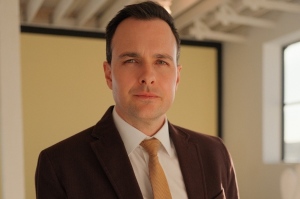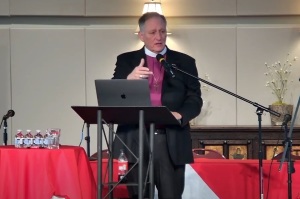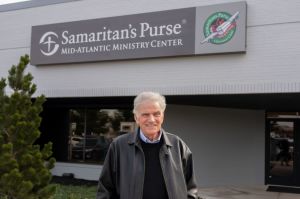Cadet Leaves West Point Because Academy Is Too Religious
Five months before graduating from West Point military academy, Cadet Blake Page has announced his decision to quit due to what he believes is an overt advocacy of religion and prayer within the institution.
"I do not wish to be in any way associated with an institution which willfully disregards the Constitution of the United States of America by enforcing policies which run counter to the same," Page, 24, wrote in a Dec. 3 opinion piece for The Huffington Post.
Page, the president of the West Point Secular Student Alliance and first Director of Military Religious Freedom Foundation (MRFF) Affairs at West Point, located in New York, argued in his opinion piece that several policies at West Point were religious in nature, including mandatory prayer, and additionally the nonreligious members of the academy were treated with less respect than religious cadets.
Page told The Associated Press earlier this week that he chose not to continue at the U.S. Army Academy because his clinical depression had become more pronounced as he fought the reported religious confines of West Point.
"[…] countless officers here and throughout the military are guilty of blatantly violating the oaths they swore to defend the Constitution," Page wrote in his Dec. 3 Huffington Post piece.
"These men and women are criminals, complicit in light of day defiance of the Uniform Code of Military Justice through unconstitutional proselytism, discrimination against the non-religious and establishing formal policies to reward, encourage and even at times require sectarian religious participation," Page added.
Theresa Brinkerhoff, a spokesperson for the West Point academy, told AP Wednesday that prayer is voluntary at the academy's invocation and benediction ceremonies, and also noted that the academy is evidently open to atheists and secularists as seen through their West Point Secular Student Alliance, of which Page is president.
Although Page argues that his fellow atheist and secularist cadets at the academy share his sentiment, others argue that West Point practices an open policy toward all faith-related issues.
B.J. Garrison, a 2002 graduate of West Point, wrote in his own opinion piece for The Huffington Post that he believes the academy is outwardly accepting of all religions.
"This is not the hand of a draconian hierarchy at work. Believe it or not, USMA [United States Military Academy] leadership often chooses the least abrasive method in dealing with Cadets because they understand that these individuals are young thinkers who must be allowed to grow and expand their understanding of their surroundings so that they might become better leaders for our nation's military," Garrison wrote.
Garrison, a self-described Christian liberal, went on to assert that although West Point is open to all faith-related groups, the military is not a non-religious entity.
"Religion is everywhere in our society […] It just happens that in the military – a place where you may very well meet your end far away from your home and loved ones – religion becomes more prevalent and personal for many," he wrote.
"To believe that you can somehow make the military less religious is to believe you may be able spontaneously grow gills and live under the sea," he added.
According to NBC News, Page has been provided an honorable discharge from West Point and will not have to pay "recoupment" costs for his previous 3 ½ years of military training.
Reports indicate that dropping out of the U.S. military academy is very rare for cadets in their third and fourth years at the institution, as they have established a camaraderie with fellow classmates.
"Cadets will tell you it's very hard to leave," Elizabeth Hillman, professor of law at University of California Hastings College with a specialization in military law, told NBC News.
"It's much harder to leave than to stay," Hillman added.



























